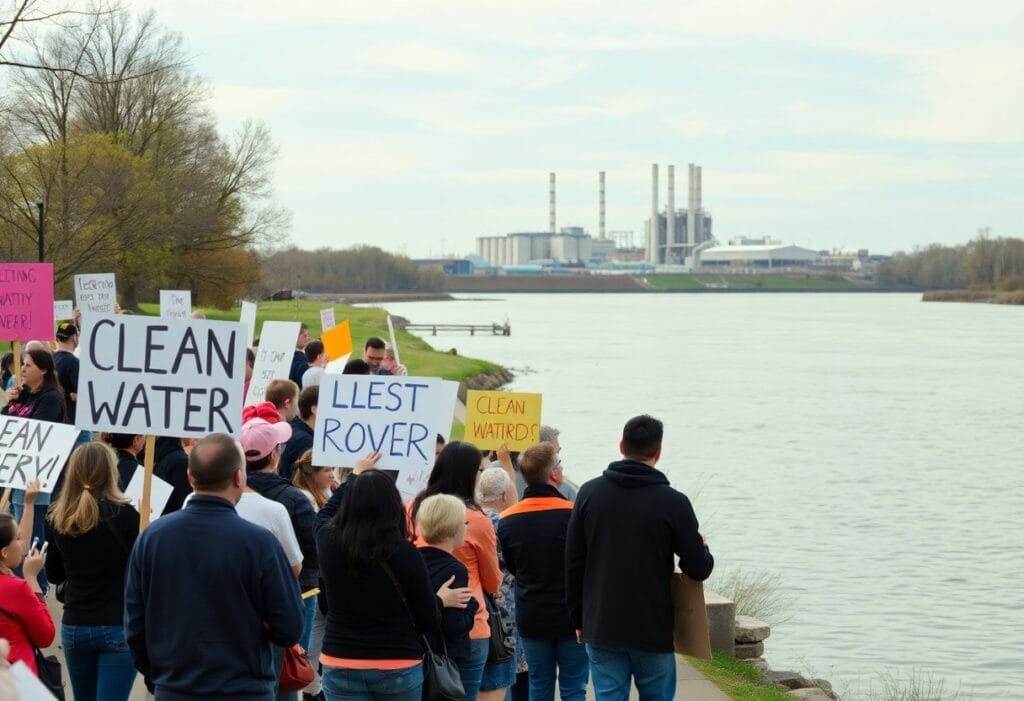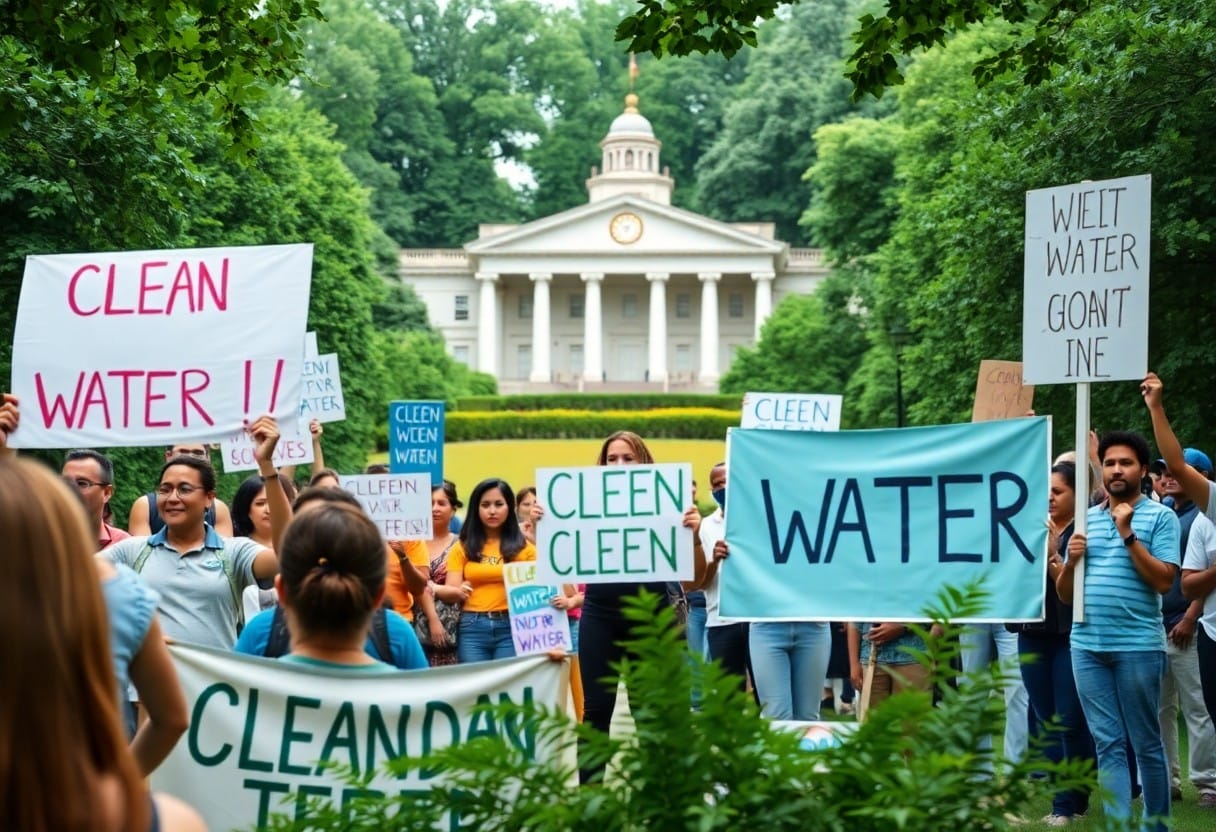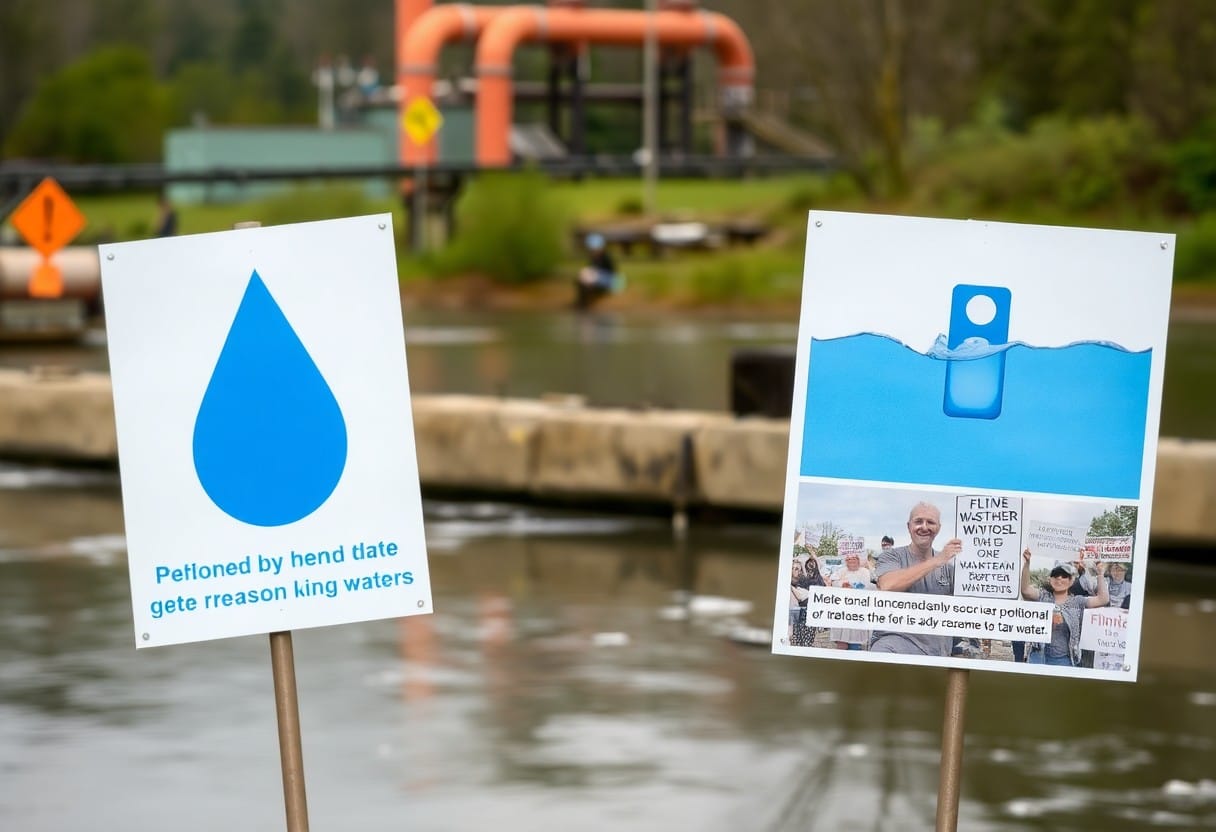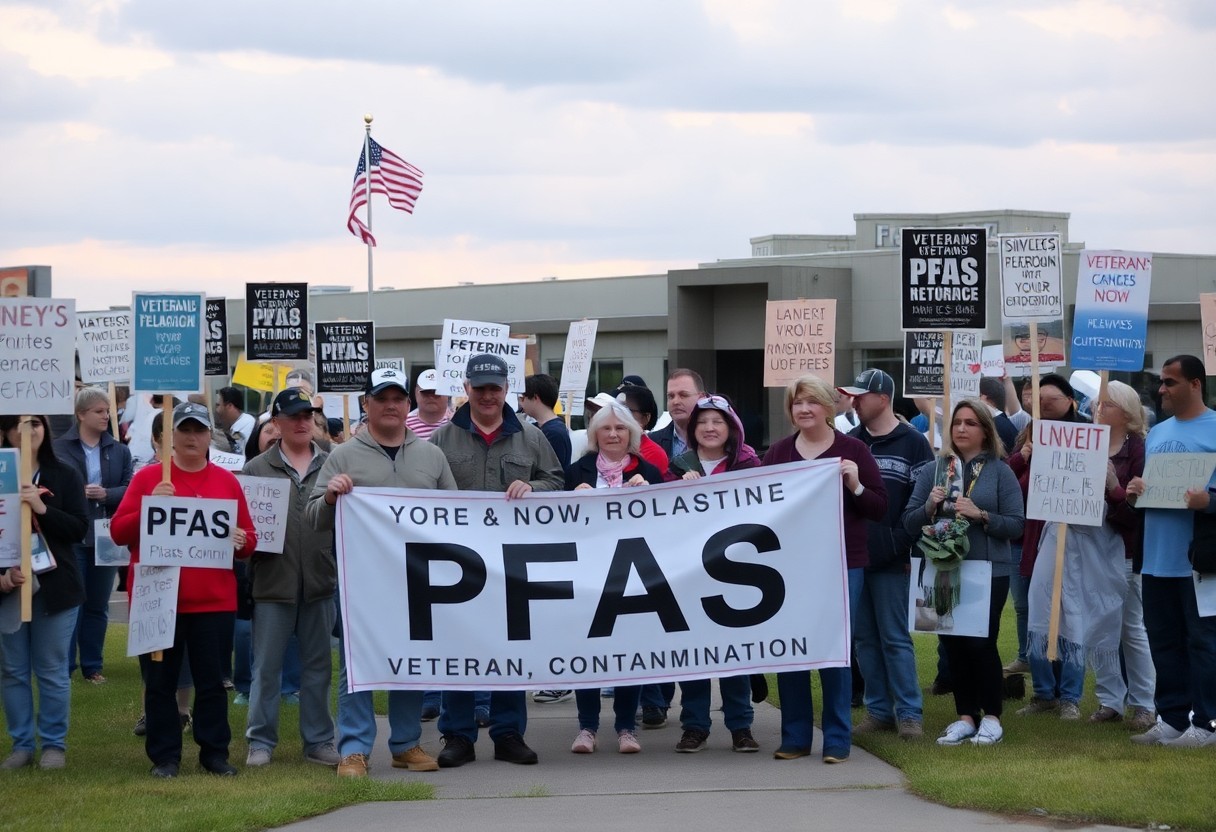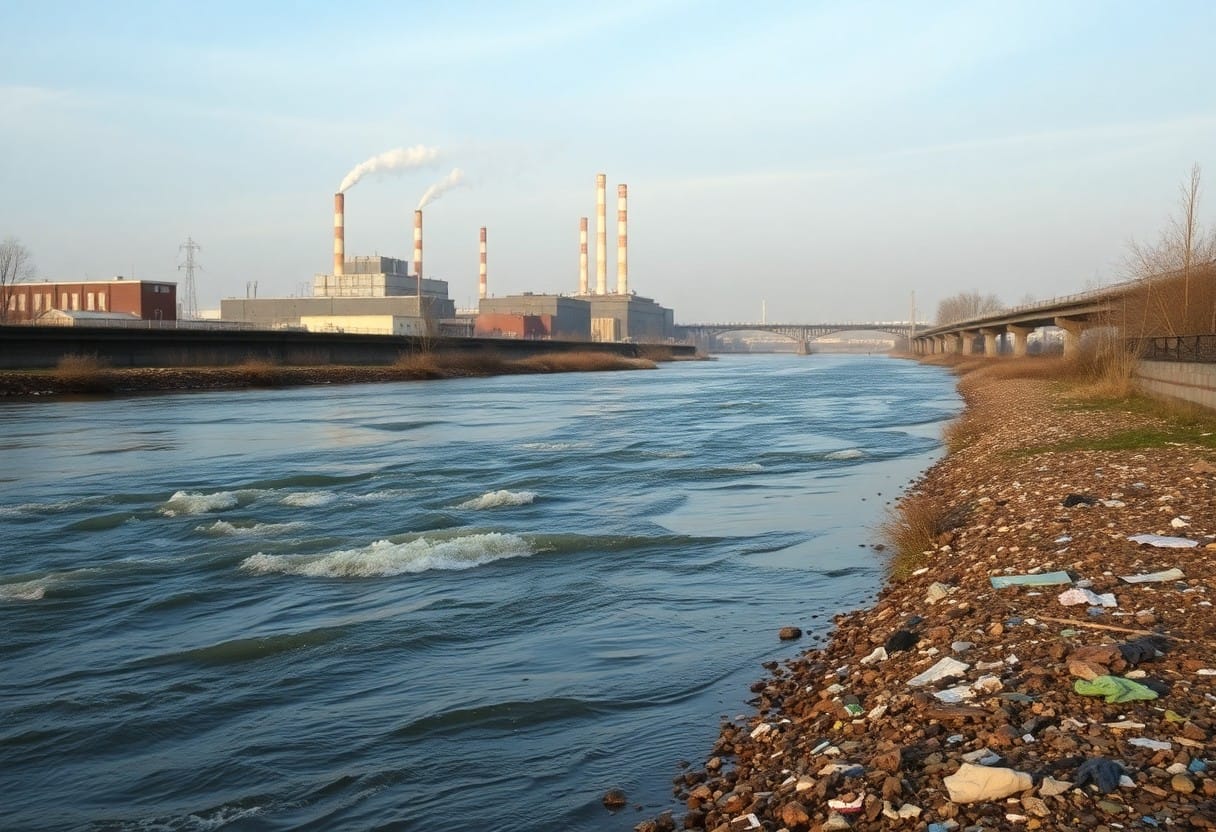It’s imperative for you to understand the impact of Fayetteville’s Chemours water crisis through the eyes of those who experienced it firsthand. Residents have faced serious health risks and environmental challenges due to contaminated water supplies, prompting their urgent pleas for justice and accountability. As you navigate through these personal stories, you’ll gain a deeper appreciation for the resilience and strength of the community while witnessing their ongoing fight for clean water and a safer future.
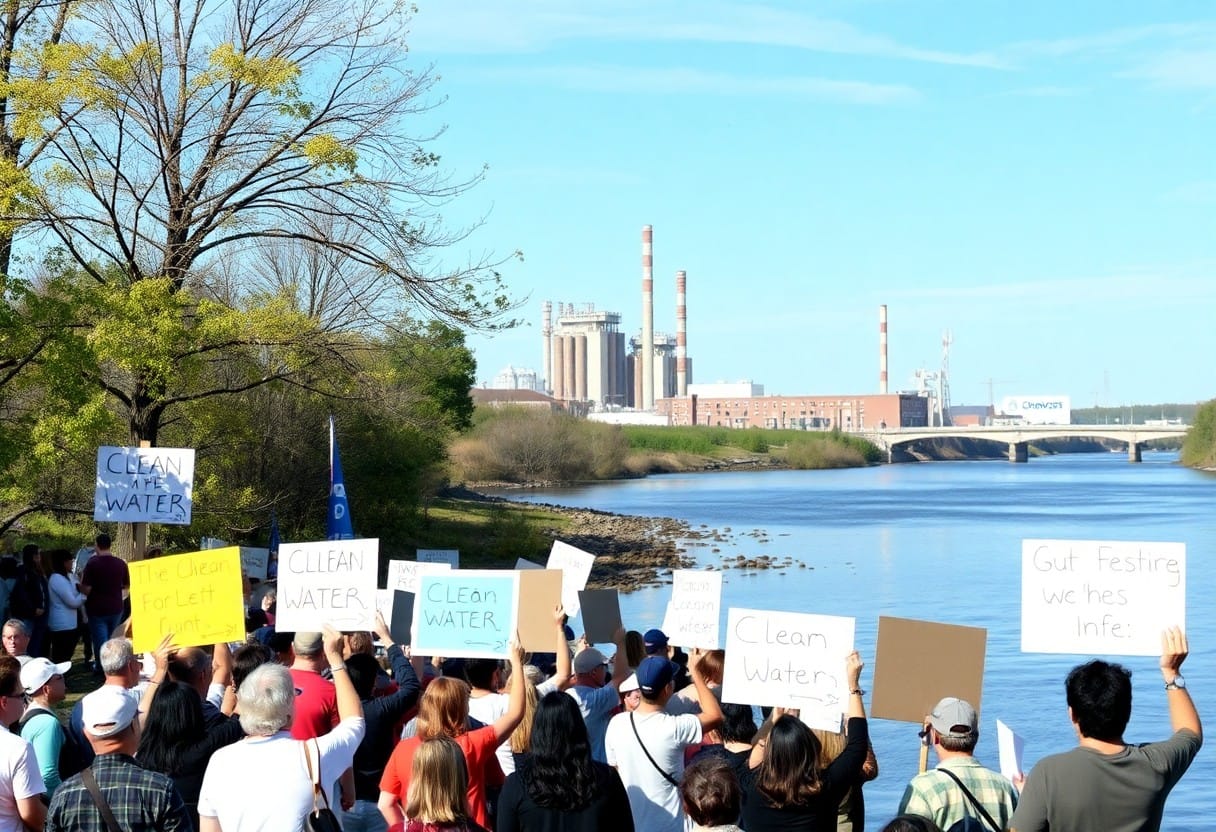
Background of the Chemours Water Crisis
The Chemours water crisis in Fayetteville has been a significant environmental issue that has tilted the balance between industrial growth and public health. It stems from the manufacturing processes that have occurred over decades, introducing numerous pollutants into the local water supply. Understanding the origins of this crisis can provide you with insight into how manufacturing practices impact community welfare, and how regulatory oversight is often contested by corporate interests.
Historical Context of Chemical Manufacturing
For many years, Fayetteville has been the site of extensive chemical production, particularly in the manufacture of fluorinated chemicals used in various applications. This industrial expansion brought both economic opportunity and serious environmental consequences. You should know that the legacy of chemical plants in your area means that pollutants often linger long after operations have ceased or changed, creating a complex tapestry of historical and present-day environmental challenges.
Overview of Contaminants Involved
Beside the socioeconomic aspects, the chemical compounds linked to the Chemours crisis are vital to understand. The primary contaminants of concern include per- and polyfluoroalkyl substances (PFAS), which are known for their persistence in the environment and human body. These chemicals have been associated with a range of health issues, from liver damage to developmental problems, making it vital for you to be aware of their potential impact.
Water samples collected from the region have frequently revealed alarming levels of these harmful contaminants, prompting health advisories and increasing anxiety among residents. You may have heard stories about how locals have had to confront potentially elevated risks, facing uncertainty about the safety of their drinking water. Understanding the risks associated with these chemicals empowers you to advocate for clearer regulations and hold responsible parties accountable for the health of your community.
Impact on Fayetteville Community
One of the most devastating aspects of the Chemours water crisis has been its profound impact on the Fayetteville community. Residents are increasingly coming forward to share their stories, voicing their frustrations and fears regarding their water quality and health. “It’s insane we’re forced to live this way”; North Carolina … is a sentiment echoed by many in the area. You might find yourself questioning the integrity of your local government and the safety of your environment, leading to a growing sense of urgency for accountability and change. The community’s well-being is deeply intertwined with these ongoing concerns, shaping a collective experience riddled with anxiety and uncertainty.
Health Effects Reported by Residents
Around Fayetteville, numerous residents have reported the troubling health effects linked to the contaminated water supply. Issues such as skin irritations, gastrointestinal problems, and even respiratory distress have emerged as common complaints. You may feel apprehensive about the long-term implications of exposure to toxic chemicals like per- and polyfluoroalkyl substances (PFAS), which have been associated with various health disorders. This uncertainty can take a toll on your mental well-being, as you grapple with the reality of your drinking water possibly compromising your health.
Economic Consequences for Local Businesses
Around the region, local businesses are also feeling the financial strain brought about by the Chemours water crisis. Many restaurants and shops depend on the trust of their customers, which is now wavering due to safety concerns surrounding the water supply. As residents become more cautious about where to dine or shop, you may notice a decline in foot traffic, impacting sales and ultimately profitability. Local entrepreneurs are struggling to navigate these challenges, searching for ways to reassure customers while dealing with rising operational costs due to potential clean-up efforts.
Consequently, the ripple effects of the crisis extend far beyond health considerations, severely affecting the local economy. Many business owners are forced to invest in alternative water sources and filtration systems to restore their customers’ confidence. These unexpected expenses complicate an already challenging landscape, as you may witness beloved establishments closing their doors or downsizing due to the financial burden. The community’s resilience will be tested as everyone works together in hopes of restoring both their health and economic stability.
Personal Testimonies
Assuming you live in Fayetteville, you may have heard unsettling stories that echo the devastating effects of the Chemours water crisis. From families grappling with health concerns to the bitter struggle for clean water, the experiences shared by local residents are harrowing. One such testimony comes from a community member who described their situation as *“It’s terrible”: Fight for clean water in Cumberland County* where hope and despair dance as they await justice and resolution. You can read more about this ongoing battle here.
Stories of Affected Families
Affected families have been left grappling with the unforeseen consequences of water contamination, a nightmare that has turned homes into hubs of anxiety. You may find it shocking to hear from those who have faced health issues directly linked to PFAS chemicals in their drinking water. Reports of *unexplained illnesses* and increased medical expenses add layers of stress, as families navigate their daily routines with a looming sense of uncertainty about their health and future.
Community Activism and Response
Across Fayetteville, you may witness inspiring acts of community resilience as residents take matters into their own hands. Town hall meetings buzz with discussions about water safety, and local organizations work tirelessly to register complaints and demand action from authorities. The collective determination of your neighbors signifies a stand against the injustice of contaminated water, highlighting the power of unity in the face of adversity. Community efforts are not just about addressing immediate needs but also about advocating for long-term solutions and holding responsible parties accountable.
Activism in Fayetteville is fueled by a deep commitment to safeguarding both your health and the environment. Many residents partake in organized rallies and awareness campaigns, emphasizing the importance of safe water access. They advocate for stricter regulations on chemical pollution and engage with local leaders to ensure that your voices are heard. The collaboration among various grassroots organizations demonstrates that, even in hard times, there is a powerful strength that emerges when you stand together for a common cause.
Government and Regulatory Responses
Despite the severity of Fayetteville’s Chemours water crisis, local, state, and federal governments have begun to respond with a range of measures aimed at protecting the community and ensuring safe drinking water. These efforts are critical not just for addressing immediate concerns but also for establishing long-term strategies to prevent contamination. You might be interested in how local leaders have been actively engaged in communicating with residents, providing updates, and seeking solutions, emphasizing transparency throughout the process. Stricter regulations on chemical discharges are emerging as a pivotal focus, as the community demands accountability and action.
Local Government Actions
One of the first steps the local government took was to conduct extensive testing of the water supply to assess contamination levels. You might find it particularly alarming that initial findings indicated higher-than-acceptable levels of per- and polyfluoroalkyl substances (PFAS), which are linked to serious health risks. In response, local officials quickly organized town hall meetings to engage with residents, offering them the opportunity to voice concerns and gather vital information on next steps. This local initiative has provided a sense of community and urgency that resonates with many affected households.
State and Federal Involvement
To bolster local efforts, state agencies and federal entities have also stepped in, establishing guidelines to ensure adequate safety measures are implemented. You will find it reassuring to know that federal organizations, including the Environmental Protection Agency (EPA), have begun to increase scrutiny on Chemours’ operations and potential violations. This multi-level response illustrates a commitment to upholding your right to safe drinking water and holds polluters accountable. State resources have also been allocated for cleanup and long-term monitoring, ensuring that improved oversight remains a top priority.
With ongoing investigations and regulatory changes on the horizon, residents can expect increased monitoring and improved public health standards as a result of both state and federal interventions. The collaborative approach aims to not only rectify the current crisis but to establish frameworks that adequately address water safety and environmental protection. You should stay informed about these developments, as they could directly impact your access to clean water and overall health in the future.
Lessons Learned
For residents of Fayetteville, the Chemours Water Crisis has been more than just an environmental issue; it has been a profound lesson in the importance of vigilance and accountability in our local governance. It is imperative to understand that the protection of our natural resources and public health does not happen in a vacuum. Oversight from regulatory bodies must be robust and proactive, ensuring that companies adhere to environmental standards that safeguard your community. This crisis has highlighted the necessity for continuous monitoring and enforcement of policies that impact water quality and environmental safety.
Importance of Environmental Oversight
One of the most significant realizations stemming from this crisis is the need for enhanced environmental oversight. Without stringent regulations and consistent monitoring, toxic substances can easily infiltrate your water supply, endangering health and well-being. The Chemours incident illustrates that when lax oversight is allowed to prevail, the effects can be devastating not just for individuals, but for entire communities who rely on these resources for daily living.
Role of Community in Advocacy
Above all, you are reminded of the powerful role that community advocacy plays in addressing environmental concerns. The Chemours Water Crisis spurred residents to band together, organizing discussions, engaging with policymakers, and demanding transparency from those in charge. This collective drive demonstrates that your voices matter and can bring about change. When you advocate for accountability and environmental justice, you stand not only for yourself but for your neighbors and future generations.
Environmental advocacy is about more than just raising awareness; it is about taking action to ensure that your community’s needs are met. Many residents found strength in unity, leading campaigns and holding public forums to discuss safety and health concerns related to water quality. In doing so, you are asserting your right to clean water and a safe environment. Grassroots movements can often lead to systemic changes, as seen when you engaged with local officials demanding stricter regulations and better oversight. Every voice counts, and by coming together, you amplify concerns that can lead to lasting improvements in environmental protection.
Future Implications
After the events surrounding Fayetteville’s Chemours water crisis, you may find yourself pondering the long-term consequences for your community and the environment. The repercussions of this situation extend beyond immediate health concerns; they can redefine how water safety is approached in the coming years. With increasing awareness of pollution and its impacts, communities like yours are now more likely to demand transparency and accountability from corporations, regulators, and local governments alike. Consequently, the landscape of environmental oversight may be set to evolve, requiring you to stay informed and engaged as changes unfold.
Ongoing Monitoring and Remediation Efforts
Among the responses initiated by the Chemours water crisis, ongoing monitoring and remediation efforts have become a focal point for restoring public trust and ensuring safe drinking water. Local authorities, in partnership with environmental organizations, are establishing rigorous testing protocols to assess water quality continuously. This means you can expect regular updates on water safety standards, which aim to mitigate any lingering effects of the contamination. These initiatives also emphasize the need for effective remediation technologies that can neutralize harmful chemicals, ensuring your community’s water supply is safe for everyone.
Broader Impacts on Environmental Policy
Above all, the fallout from Fayetteville’s Chemours water crisis may serve as a catalyst for significant changes in environmental policy both at the state and national levels. By witnessing the consequences of inaction, legislators are more likely to prioritize stricter regulations and enforce accountability for companies that pollute. This emerging trend encourages you to advocate for policies that enhance water protection efforts and support sustainable practices in industries across the board.
Implications of the Fayetteville water crisis on environmental policy could be far-reaching and transformative. With a growing public demand for enhanced regulatory standards and greater accountability for polluters, you might see a shift toward comprehensive legislative reforms that prioritize public health and environmental sustainability. In this rapidly changing landscape, becoming informed and actively participating in local discussions about water safety can empower you and your community to shape the policies that affect your quality of life. This could also encourage a more unified front among neighboring communities, signaling to policymakers that environmental issues are not to be taken lightly.
To Wrap Up
With this in mind, it is imperative for you to appreciate the significance of personal narratives emerging from Fayetteville’s Chemours water crisis. These stories not only highlight the immediate impact on individuals and families but also illuminate the broader implications for community health, environmental justice, and corporate accountability. By engaging with these experiences, you can better understand the complex interplay between pollutant exposure and the lives affected by such environmental negligence. Each account serves as a testament to the resilience of those who have faced adversity and a call to action for transparency and systemic change.
Your involvement is vital in amplifying these voices and advocating for meaningful policies that prioritize safe drinking water and environmental protection. By being informed about the experiences of others, you empower yourself to take an active role in ensuring that such crises do not define future generations. Ultimately, your awareness and engagement can contribute to a collective effort toward healing and restoring trust in both local institutions and the environment. The personal stories from Fayetteville are more than just local news—they represent a national conversation on the urgent need for accountability and sustainable solutions.


